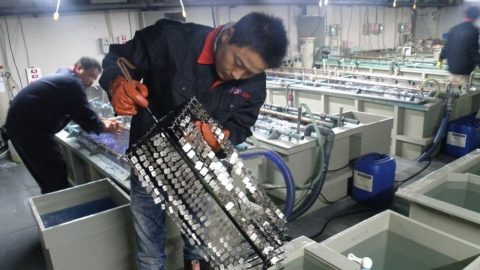
Illustration (Source: Internet)
Artificial intelligence (AI) offers hope for solving defects and inefficiencies in electroplating. Despite the fact that this process is commonly used in many different industries, it has not yet been fully studied. The metallurgists often choose the traditional electroplating process because the potential to improve this process is not high. This has been changing since a series of advanced technologies, including artificial intelligence.
Not all metal manufacturers and processors have sufficient explanation for the physical and chemical reactions in their manufacturing process. Therefore, the potential for improvement in the area of materials and reactions is often overlooked. Although many managers also recognize this, they choose to accept rather than spend a lot of money to maintain a highly qualified research and development team. However, this problem can be solved thanks to artificial intelligence technology.
Today’s material science can be shared as a basic knowledge on the global internet platform, as well as on transactions, supply chain management and corporate finance. It should be noted that recruiting services will not lose importance, will be one of the important elements of successful business in the future. Well-trained personnel will become the basis of economic efficiency of the business.
Back to artificial intelligence. When applied in metal manufacturing, managers only need to provide input materials for materials science, then AI will build its own standards and simulate. Your manufacturing process along with the possible reactions in reality. This significantly reduces the costs that businesses spend from research activities to test production.
Due to the complexity of non-ferrous metallurgical processes, there are not many applications in this area. Usually metallurgists make operating decisions based on two things: current regulations and personal experience. For this reason, AI has not been widely applied in metallurgy, because many manufacturers do not fully believe in logical decisions.
Professionals in the field of AI must take into account the specifics of different businesses even when working with the same metal. It’s obvious that it is easier to expand AI solutions for similar plants than to set up a solution for each business, but in ferrous metallurgy, no factory is exactly the same, even if They produce the same product. This makes the implementation of AI-based solutions more complex and thus more costly for the ferrous metallurgy industry.
(To be continued)
Productivity and Quality Office